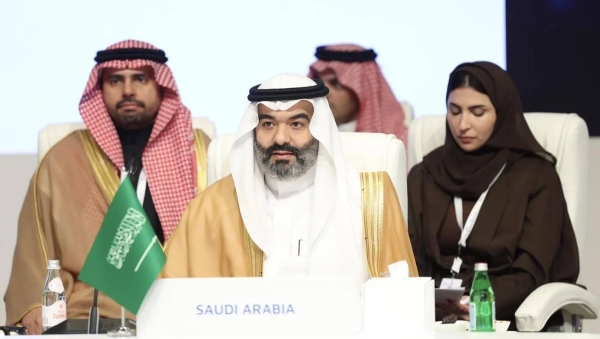
RIYADH: Research into generative artificial intelligence will receive a boost thanks to a new Saudi-led initiative at the Digital Cooperation Organization.
The effort aims to support research, improve, and govern policies for generative AI across member states, increase awareness of its ethics, and support capacity building in the field.
Generative AI, also referred to as GenAI, allows users to input prompts in order to render new content, such as text, images, videos, and other media. It “learns” and is trained on documents and artifacts that already exist online, a Coursera report outlined.
It evolves as it continues to study additional data, operating on AI models and algorithms established on large unlabeled data sets.
These data sets train the AI to predict outcomes in the same ways humans might act or create independently.
The initiative, entitled “Generative Artificial Intelligence for All Initiative for Member States of the Digital Cooperation Organization,” was launched by the Saudi Minister of Communications and Information Technology, Abdullah Al-Swaha, during the Third General Assembly of the Digital Cooperation Organization.
The minister inaugurated the project alongside officials from the 16 member states – which include Qatar, Pakistan, and Morocco – as well as high-level delegations from partners and observers, according to the Saudi Press Agency.
The effort will be supervised by the International Center for Artificial Intelligence Research and Ethics, known as ICAIRE, which is led by the Saudi Data and AI Authority.
This initiative aligns with the Kingdom’s continuous support for the organization’s mission, which focuses on enhancing digital inclusiveness and prosperity, according to SPA.
It further highlights Saudi Arabia"s dedication to expediting digital transformation and backing Generative Artificial Intelligence for the global benefit of nations.
In 2023, global consultancy firm PwC projected that AI would contribute $135 billion to the Saudi economy by 2030, positioning the Kingdom as the primary beneficiary of technology in the Middle East.
“In absolute terms, the largest gains are expected to accrue to Saudi Arabia where AI is expected to contribute over $135.2 billion in 2030 to the economy, equivalent to 12.4 percent of the gross domestic product,” stated PwC in its report.
This latest initiative comes after the announcement in November of plans to open a new artificial intelligence center in Riyadh.
It was initially approved by Saudi Arabia’s Crown Prince Mohammed bin Salman in June, and aims to advance competencies and legislative frameworks in the field of AI and other advanced technologies.











